Rayonier Scientists Bring Deep Knowledge to Forest Management
Rayonier employees are putting our resources to work for you! We take you behind the scenes in this series of Rayonier videos and articles.
Published 11-17-22
Submitted by Rayonier
Featured in Forestry and Forestry Careers and Meet Rayonier and Sustainability
The in-house research team not only stays on top of the latest research, but conducts research projects of their own to address challenges in our forests.
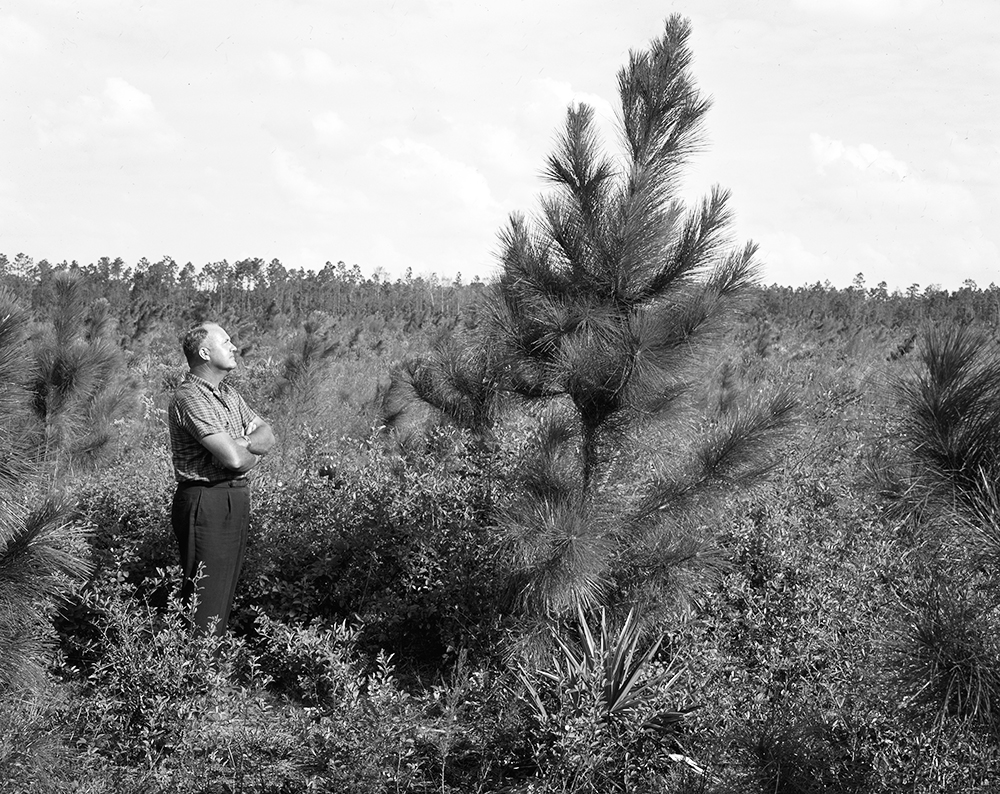
Working forests are healthy and vibrant not due to luck or chance but rather because of a growing body of scientific knowledge that supports thriving pine trees, clean watersheds and diverse plant and animal species on active forestlands.
For 75 years, Rayonier has invested in its in-house Forest Research Center, where scientists have studied trees and forests down to the genetic level. The Center is one of only two industry-led research teams in the country.
“There’s been a lot of improvement to forestry as we’ve learned more about biology and that’s really where the team comes in,” says Trevor Host, Research & Development Coordinator at the Research Center. “We take what we’ve learned from experiments and make that operational. We still have research notes from the ’70s that we reference today.”
The Three Roles of Rayonier’s Forest Researchers
As the team has grown, it has taken on three key roles:
1) Breed and test tree families for the best growth and quality
2) Research all aspects of forest management and put the results into action throughout the company
3) Enforce sustainability certification standards, including record-keeping and staff training
The team, which works out of our office in Yulee and in various Rayonier offices across the U.S., collaborates with university scientists on cooperative efforts: Rayonier provides the land, labor, and other resources for large-scale research projects that scientists from industry and academia work on together.
But team members also create their own research projects in response to questions that come up within the company, usually from front-line forest managers who need help with specific challenges.
Three team members share their experiences working at the Forest Research Center:
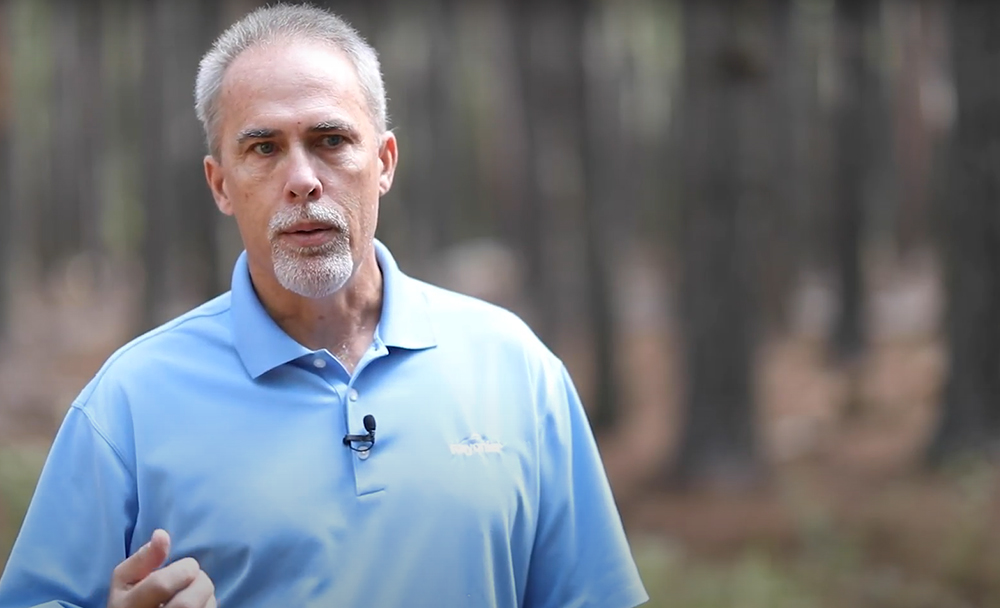
Kirk McEachern—Senior Manager, Forest Productivity & Sustainability Group
Kirk’s knowledge of forest health is literally deeply rooted–he studied soil science in college and graduate school before starting his career as a soil cartographer, in which he mapped soil types and distribution for local, state and federal government projects.
Kirk says it wasn’t long before he “morphed” and started working on trees in the forestry industry, where he’s been for 27 years. He has worked on everything—hybrid poplars, hardwoods, yellow pines—and brings decades of experience to his role as manager of the Forest Productivity and Sustainability Group.
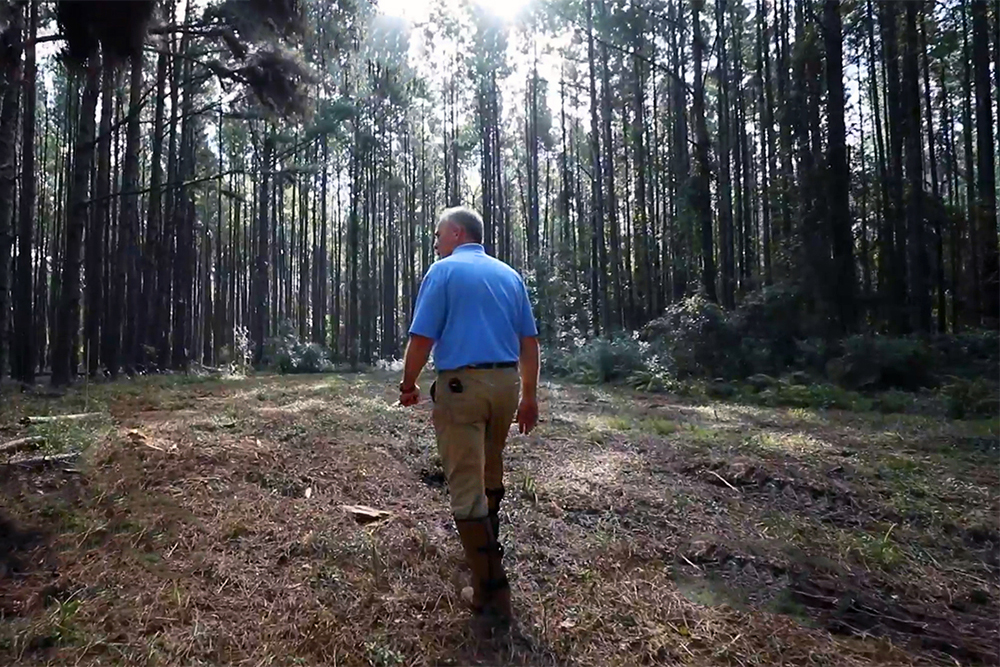
His main role is to support front-line foresters and other decision-makers throughout the company on all aspects of forest management. For example, if a forester has a problem with disease in a stand of pine trees, Kirk and his team provide current scientific insights to help guide decisions.
Kirk also oversees environmental compliance efforts, including the company’s voluntary commitment to its Sustainable Forestry Initiative (SFI) Forest Management certification. Kirk trains employees on compliance and record-keeping requirements in an effort to protect water quality, biodiversity, wildlife habitat and at-risk species. SFI’s stringent requirements are independently audited and require meticulous documentation.
This breadth of responsibilities has been rewarding for Kirk, who says Rayonier has given him the opportunity to grow in his career. He hopes to pass his knowledge on to the incoming generation of scientists.
“I very much enjoy sharing what we have collectively learned and understand about forest management to those just starting their careers,” Kirk says. “The industry generally is experiencing a lot of change in age distribution and Rayonier is no different. The challenge is to codify and not lose what we have learned over the previous 75 years.”
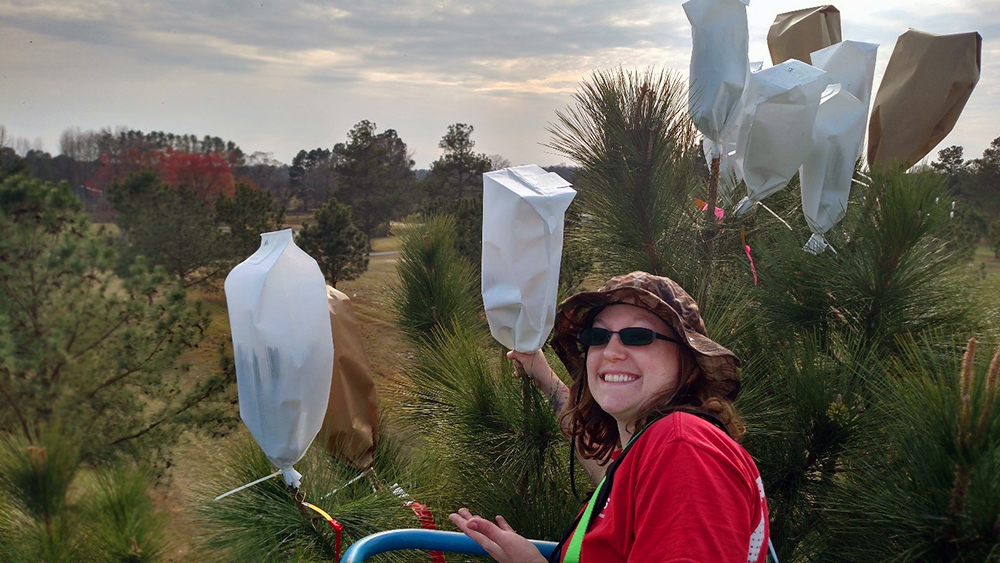
April Meeks—Tree Improvement Scientist, Research & Development Coordinator
A relative newcomer to the Forest Research Center, April Meeks describes herself as a “forestry nerd.” She earned this title with a bachelor’s degree in environmental science and a master’s in forestry. Now, April is finishing her doctorate in forest genetics with dissertation work in progress as part of her role at Rayonier.
“My favorite thing about studying forestry is being able to learn about how a tree grows,” she says.
As a Tree Improvement Scientist, April tests tree families to determine those with the best potential for healthy growth. She says it’s rewarding to be part of Rayonier’s reforestation process and she looks forward to watching the seedlings grow to be big, healthy trees.
April also designs research projects to address specific challenges facing Rayonier foresters.
“My favorite project that I’ve worked on so far is a project with a disease affecting our trees called pitch canker,” she says. “We artificially inoculated some of our families for the disease. The project is part of my Ph.D. work and I got to practice some analytical techniques for processing the data, which I had only done in courses at school. For the first time, I was working with my own data and processing the results on my own.”
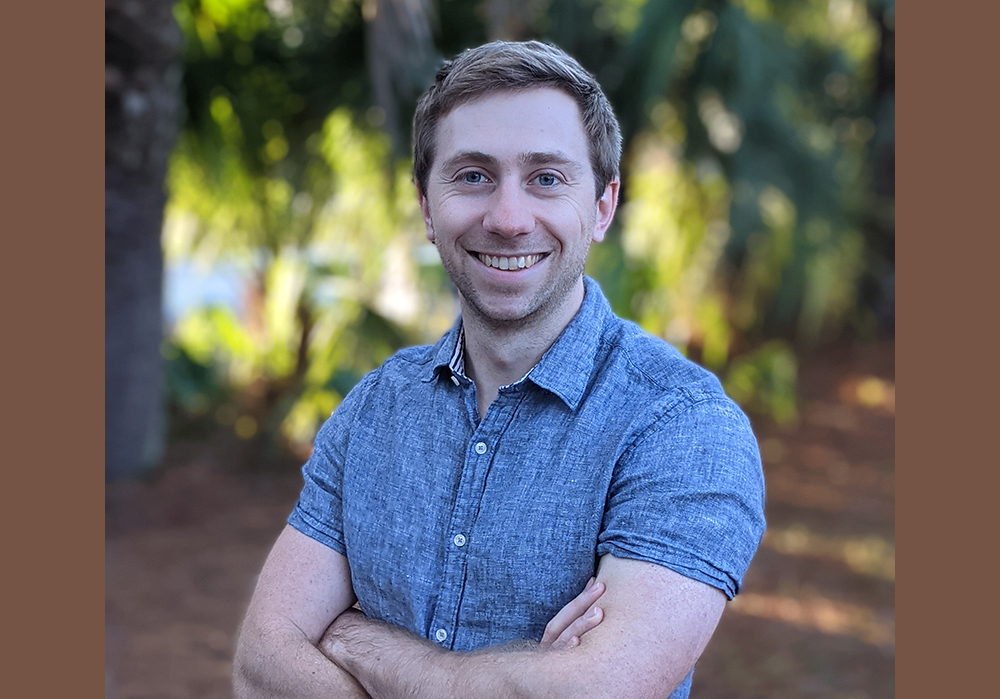
Trevor Host—Research & Development Coordinator for Remote Sensing
Filling a brand-new role at the compan, Trevor’s specialty is remote sensing, relying on aerial imagery, satellites, drones, and other emerging technologies to map and monitor forests.
He studied environmental science at the University of Wisconsin-Madison, followed by a master’s in natural resources at the University of Minnesota, where he focused on forestry.
“I was interested in the technology side of it. There’s just different ways you can use modern technology to aid how folks have traditionally done forestry for many decades,” Trevor says. “And I learned about what you could do in these roles. It’s a good blend of technology as well as being out in the woods, being in a more natural environment, and being a steward of the land, just managing it to make a better world for everybody.”
Trevor is working on a new LiDAR (Light Detection and Ranging) data project in which laser scanners mounted on aircraft are flown over Rayonier forests to collect 3D imagery, providing highly detailed terrain maps for forest managers.
“We can see the elevation of the ground underneath the forests which is new and very useful,” Trevor says. “You can tell where the water flows and where the streams are in our land base which is really important. Then we have a 3D map of the forest too. It’s useful for mapping tree heights.”
Trevor is excited to see how this data supports the company’s forest management efforts and looks forward to emerging technologies.
“As new things develop we have different and unique needs,” says Trevor. “We need to be able to grow into those new avenues as technology gets better.”
The future of the Forest Research Center
Though the group’s founders didn’t foresee the high-tech mapping technologies or sustainability standards that have become part of forestry, the Center has adapted beautifully to these changes. That’s because the Forest Research Center is, at its core, a scientific endeavor. As science itself is never a finished product, the need for innovation and rigorous research in forestry will continue into the next era of management.
And as for the future, Kirk, the manager of the FPS group, says that front-line foresters will continue to need new research into genetics and forest management practices. In-house research is more valuable than ever.
He and his team are excited to see what the next era of forestry research brings!

Rayonier
Rayonier
Rayonier (NYSE:RYN) is a leading timberland real estate investment trust with assets located in some of the most productive softwood timber growing regions in the United States and New Zealand. We own or lease under long-term agreements approximately 2.8 million acres of timberlands located in the U.S. South, U.S. Pacific Northwest and New Zealand. We are More than trees because we recognize that our 90+ years of success in the timberland industry comes from our people, an empowering culture and the courage to constantly challenge “the way it’s always been done.” Get to know us at www.rayonier.com.
More from Rayonier

